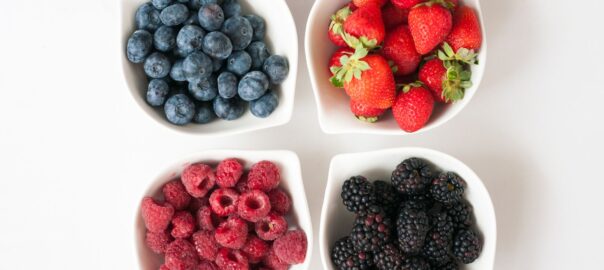With so many articles and labels out there promoting antioxidants, it makes you wonder if it's all hype or if there is value gained from consuming ORAC (oxygen radical absorbance capacity) rich foods.
Role of Antioxidants
We need to start with an understanding that antioxidants are your body's first defense against free radicals, stopping the degenerative chain reaction that leads to free radical damage. It's important to understand that free radicals don't destroy cells. Rather they injure cells and damage their DNA, mutating them and thereby creating a seed for disease.
Oxidation Process Example
A simple example of this is an apple. What happens to an apple when it's sliced and left out for 30 minutes? It turns brown, or oxidizes. The interaction between oxygen and the cells causes oxidation. This process occurs in our bodies daily and is multiplied depending on the choice of foods we eat, the environment we live in, stress levels we endure, etc. Ok, but is the damage really that severe and if so, how can we protect ourselves?
Effects of Free Radical Damage
Many of the physical effects we call "aging" result from free radical damage. Skin damage caused by unprotected exposure to excessive sunlight, for example. Disease and illness caused by cigarette smoke, fried or processed foods, coupled with low consumption of foods (fruits & vegetables) having high antioxidant values are other effects. Over time choices that seem to have little impact, in fact, have been shown to speed up the aging process inside and outside the body and are a large factor in the deterioration of health over time.
Defense Against Oxidation
Defense is the best offense OR prevention is the best medicine. Let's look at our apple again, its skin protects it from the elements, but once sliced it begins to oxidize. However, pouring lemon juice over it prolongs its inevitable process of rotting. Our bodies generate highly potent antioxidants, however with the increasing amounts of free radical exposure, we cannot produce enough to fight against the constant attacks and oxidative stress we undergo daily.
Supporting the Body
We need to support our body and give it a fighting chance by eating antioxidant-rich foods partnered with antioxidant supplementation. According to the European Journal of Nutrition, an 11-year study of 24,000 people that was published in July 2011, found that users of antioxidant supplements are 48% less likely to die of cancer and 42% less likely to die of any other disease.
Antioxidant-Rich Foods
What are some antioxidant-rich foods? Blueberries, blackberries, raspberries, strawberries, cranberries, red beans, kidney beans, artichoke hearts, kale, asparagus, tomatoes, red cabbage, sweet potatoes, walnuts, pistachios, pecans, hazelnuts, almonds to name a few. And, yes, cocoa, red wine, and spices are also good sources.
Considering Size and Consumption
Size does matter in the case for cocoa, coffee, wine, or spices. Although these do offer high levels of antioxidants, we should look at the amount that must be consumed in order to gain the most from these yummy options. To be classified as "rich in antioxidants", food must have an ORAC rating of 1000 per 100 g. Unless we're planning on consuming 100g of curry powder or several glasses of wine in one sitting, we'll need to consider other options such as supplementation.
About the Author
Viviana Vargas is the owner of Vivifit Enterprises and is partnered with a company which developed a biophotonic scanner (a low energy blue-light laser) to painlessly and non-invasively measure antioxidant levels. She works with individuals, healthcare practitioners, fitness professionals, and nutritionists to help improve individuals' health and vitality through prevention and awareness. She can be reached at vivifitenterprises@gmail.com.


